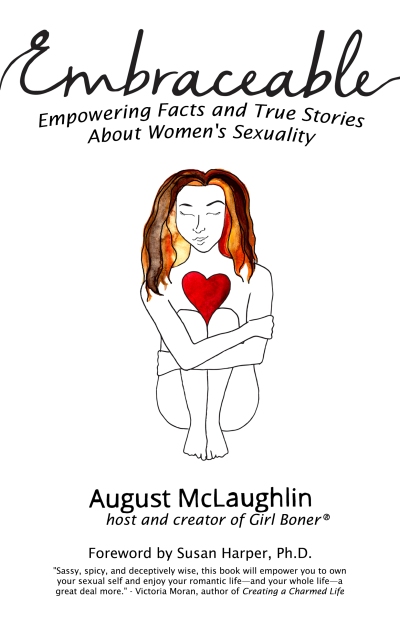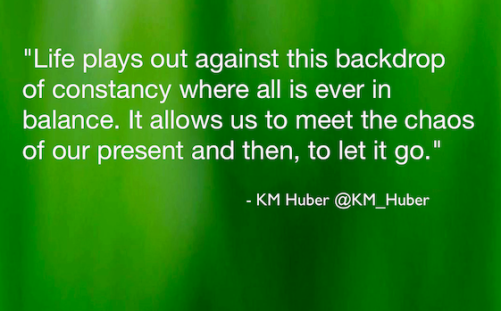I was in New York City recently, celebrating World Sexual Health Day (SO much fun) and doing a heck of a lot of people watching. Observing others, daydreaming about their lives and experiences, is seriously fun—until it reveals bullying.
While watching others people-watch, I heard numerous demeaning remarks about other folks’ appearance. Some were obvious, others not so much.
“She definitely does not have the body for that,” I heard one woman say about another’s yoga outfit. I couldn’t help but butt in: “I think she looks great, and comfortable.” There’s no right or wrong shape or size for particular clothing. We should all feel free to dress as we wish.

Do you agree? I sure hope so. If not, I hope you’ll think more about these issues. Criticizing comments may seem like no big deal, but they can cut deep, contributing to larger cultural problems that affect us all.
When we judge and shame others for their aesthetics, we make the world a harsher place—for everyone, but women, especially. Whether we make brash comments aloud or silently, they’re worth eradicating. As a bonus, doing away with negative-other talk allows us more time and energy for goodness.
Here are six common ways people shame others’ appearance, often without realizing it:
1. “She’s obviously had work done.”
Whether or not a woman (or man) has had work done shouldn’t matter to you. Who cares? Many people seem to make this kind of statement as a way to belittle another, with this kind of mentality: If so-and-so had work done, they cheated, thus I win the attractiveness contest. Psst! There’s no contest. At least, there shouldn’t be.
When you find yourself wondering if someone’s had a cosmetic procedure, stop yourself and remind yourself that it doesn’t matter. If you notice they’ve had excessive amounts, have compassion. Chances are, they’re struggling with low self-esteem and body image.
2. “Wow, you look great! Have you lost weight?”
Praising weight loss suggests that you have to be slim to appear attractive or healthy. Society may tout this as true, but it isn’t. Health and beauty come in all shapes and sizes. And people often lose weight for very unfortunate reasons, such as stress or illness.
One of my favorite perks of recover from decades of poor body image—and worse—is the fact that I don’t look at others and see shapes and sizes. I see people. Aim for that. It’s wondrous.
3. “You don’t look that old!”
Sure, it’s impressive when people maintain a sense of youthfulness longterm—but you can be impressed without shunning aging. What’s wrong with being or appearing older? Nada. Aging reflects our paths and experience, which is a groovy thing.
4. “Women’s Halloween costumes are so slutty.”
If you use the word “slut,” other than to discuss the problematic nature of its existence, STOP IT. Please. No matter what a woman wears on Halloween, or any day, is her decision and not shame-worthy. So don’t shame her. For more on this topic, check out my post from last year: What’s Really Wrong About “Slutty” Halloween Costumes.
5. “At least I have legs!”
I’ve heard variations of this many times, and it’s always bothered me. Not until I saw Stella Young’s phenomenal TED Talk recently did I understand fully why. “We’ve been sold the lie that disability is a Bad Thing—capital B, capital T,” she says. It’s not, she explains, adding that our culture objectifies people with disabilities for the benefit of non-disabled people. Here’s an example: You may dislike how your thighs look, but at least you have them! There’s nothing wrong or unattractive about a body without fewer or different parts than yours. Stop shunning them.
6. “Real women have curves (or six-packs or fill-in-the-blank).”
Trust me, I get it. Celebrating curves you have is far better than bashing them—and curvier, heavier-set women get more body-shaming than thin women. But reversing the discrimination isn’t the answer. Suggesting that you must have curves (or a chiseled, muscular look—a newer trend I’ve noticed) insults people without them. That’s not how we do away with societal’s harsh pressure to appear particular unrealistic and limited ways. We rise up by accepting all looks, while not overvaluing any of them.
*For more on this topic, check out the latest on NEON MOON’s blog: The Truth Behind Fake Body Positivity.
♥
Harsh comments about others’ shape, size or appearance typically have a lot more to do with the sayer than the person being talked about. If you’re prone to making these assessments, take a look within. Trust me, some self-work in this area will be well worth the effort.
What body-shaming remarks have you heard lately? Have you made any yourself? What steps will you take to shift your habits for the better? I love hearing from you!



















